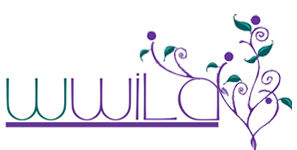To See a Counsellor or Make a Referral
Please phone WWILD on (07) 32629877
- If you would like some free counselling
- To help someone else
- Or if you want more information about our service or other services.
Referrals:
- Are taken over the phone by any WWILD staff member
- May be made by anyone – a person with intellectual or learning disability, a family member, support worker or supporter
- Are discussed at the weekly team meeting
- Are followed up by the intake worker, who will contact you or the person to talk about what happens next.
- Are not accepted by email. We require more detailed information for a proper referral. Please phone or if you send an email after-hours, please follow-up with a phone call if you haven’t heard back from us. If you are not able to use a phone, please let us know in the email.
Please remember WWILD is not a crisis service, if this is an emergency please:
- Phone 000 or the Queensland Police on 131444
- Or click on this link for other crisis and after-hours services https://wwild.org.au/links
Client Eligibility:
Services are available for people with intellectual and learning disabilities, age 12 and over who:
- Are at-risk or have experienced sexual violence
- Have been a victim of crime or exploitation such as physical or financial abuse
- Have been victims of youth-related property crime
- Have been affected by the DNA Forensic Inquiry.
Counselling Locations
WWILD’s counsellors work at:
- WWILD’s Wooloowin office Monday – Friday
- the Beenleigh Neighbourhood Centre on Mondays and Thursdays,
- the HomeLife Service in Caboolture on Thursdays.
Preparing someone for counselling
Read ‘What is Counselling?’ page with the person for more information.
Remember that:
- It’s the person’s choice to come to see us or not
- They don’t have to tell the story of what happened
- Counselling helps us to understanding and manage our feelings
- Counselling helps to learn ways to feel better and more in control
- Counselling helps us to work out what we want to do
- The person can bring someone into the counselling room with them if they want to, it is up to them
- If they are not sure, they can visit WWILD first, to meet us before they make up their mind.
WWILD’s counselling approach:
- We see the person – not their disability
- We do not define the person by their abuse and trauma
- We believe the person is the expert in their own life (not the counsellor)
- We take time to build rapport, assess, identify and work together on goals
- We change how we speak with and listen to the person according to their needs
- We are careful about suggestibility and masking
- We try to avoid jargon and asking closed questions
- We work with the effects of trauma, without always talking about what happened to the person
- We normalise these effects, acknowledge coping strategies and practice new strategies
- We utilise trauma informed practice and aim to empower the person by identifying choices and options
- We aim to improve the person’s self-esteem and self-protection strategies
- We like to work in lots of different ways according to the person’s needs, by using a range of theoretical approaches and creative strategies.

